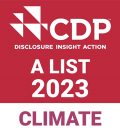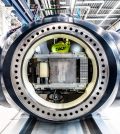Platinum medal in sustainability to SKF from EcoVadis
-

- Tweet
- Pin It
- Condividi per email
-
SKF has achieved a Platinum Medal from EcoVadis, one of the world’s most trusted providers of sustainable ratings for use in supply chains.
This is the third year SKF has been awarded the Platinum medal and now ranks in the top 1% of all companies assessed by EcoVadis. In addition, SKF has received an A- Climate Change rating from the CDP, the global non-profit that runs the world’s largest climate and environmental disclosure system for companies, cities, states and regions.
Magnus Rosen, Head of Sustainability at SKF, said: “We are proud to have been awarded the EcoVadis Platinum Medal for the third year running and to receive an A- Climate Change rating from CDP, enabling us to be recognised as one of the top performing companies assessed in both schemes. These ratings both highlight the commitment and progress we are making towards our 2030 and 2050 net zero targets and how we are working with our suppliers, partners and customers to drive the sustainability agenda and achieve positive change”.
The EcoVadis assessment evaluates 21 sustainability criteria across four key themes: Environment, Labour and Human Rights, Ethics and Sustainable Procurement. The business sustainability ratings are based on international sustainability standards, such as the Ten Principles of the UN Global Compact, the International Labor Organization (ILO) conventions, the Global Reporting Initiative (GRI) standards and the ISO 26000 standard. The ratings provide an evidenced-based analysis on performance and an actionable roadmap for continuous improvement.
The CDP Climate Change score provides a snapshot of a company’s disclosure and environmental performance. The scoring methodology provides a comparable dataset across the market. To earn leadership recognition (A/A-), companies must show environmental leadership, disclosing action on climate change. They must demonstrate best practice in strategy and action as recognised by frameworks such as the TCFD and others.
SKF has committed to achieve net zero status for all its operations by 2030 and to have a supply chain with net zero greenhouse gas emissions by 2050. As solid progress towards these goals, 2021 saw year-on-year reduction of scope 1 and 2 emissions of 3.2% – adding up to a 45% absolute reduction since 2006. In 2021, SKF also reached a 50% share of renewable electricity used at its facilities around the world.
Contenuti correlati
-
Transparency on climate change, SKF recognized with ‘A’ score from CDP
SKF has received an ‘A’, the top Climate Change rating available from CDP, the global non-profit that runs the world’s largest climate and environmental disclosure system for companies, cities, states and regions. Based on data reported to...
-
Emissions reduction targets of SKF approved by SBTi
The Science Based Target initiative (SBTi) has verified SKF’s net-zero target by 2050, validating both SKF’s near and long-term science-based emissions reduction targets. As the global body enabling companies and financial institutions to set ambitious emissions reductions targets...
-
Shaping the Future 2030 vision announced by Omron
Omron has announced its new long-term vision for fiscal 2030 and a three-year medium-term management plan, with the objective to strengthen the pace and extent of worldwide sustainable development. The vision strives to solve more diverse social...
-
Emission reduction targets SBTi science-based for Atlas Copco
Starting with 2022, the emission reduction targets of Atlas Copco will be validated by the Science Based Target Initiative (SBTi), an initiative created by CDP (the United Nations Global Compact), by WRI (World Resources Institute) and the...
-
Schaeffler Group to be climate neutral by 2040
The Schaeffler Group announced it will be operating as climate-neutral company from 2040. This objective covers the entire supply chain and is underpinned by ambitious mid-term sustainability targets. The Schaeffler Group is therefore accelerating the pace of...
-
Renewables and materials cycle in Ensinger’s climate strategy
Renewables and recycling of materials are key elements of Ensinger’s climate strategy, aimed to reduce and gradually eliminate the company’s greenhouse gas (GHG) emissions coming from the operations of the high performance plastics processor. As its first...
Scopri le novità scelte per te x
-
Transparency on climate change, SKF recognized with ‘A’ score from CDP
SKF has received an ‘A’, the top Climate Change rating available from CDP, the global non-profit that...
-
Emissions reduction targets of SKF approved by SBTi
The Science Based Target initiative (SBTi) has verified SKF’s net-zero target by 2050, validating both SKF’s near and...
Economy read all ▶
-
Simulation in motorsport for Peugeot Sport hypercar with Dassault Systèmes
Dassault Systèmes and Peugeot Sport, the motorsports division of Stellantis, announced their partnership to...
-
RF rotary joints, Servotecnica signs agreement with Diamond Antenna
Servotecnica announces the agreement signed with the US company Diamond Antenna, supplier of world-class...
-
New advanced robotics hub for Universal Robots and MiR in Denmark
Universal Robots, the Danish collaborative robot (cobot) company, and Mobile Industrial Robots (MiR), the...
Technology read all ▶
-
Two-stage pressure regulator Emerson for hydrogen-powered vehicles
Emerson has introduced a new two-stage pressure-reducing regulator intended to maximise efficiency and improve...
-
High payload vertical articulated robot Mitsubishi Electric
Mitsubishi Electric has launched the Melfa RV-12CRL vertical articulated robot, which offers 1,504 mm...
-
Highly reliable pressure sensor Parker Hannifin for hydraulic applications
Parker Hannifin has introduced the SCP09 pressure sensor, a versatile and reliable solution for...














